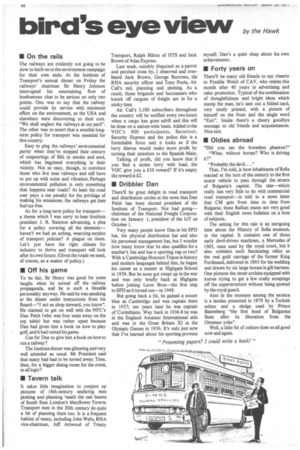• On the rails
Page 50

If you've noticed an error in this article please click here to report it so we can fix it.
The railways are evidently not going to be slow to latch on to the environment campaign for their own ends. At the Institute of Transport's annual dinner on Friday the railways' chairman Sir Henry Johnson interrupted his entertaining flow of bonhomous chat to be serious on only two points. One was to say that the railway could provide its service with minimum effect on the environment, as the USA and elsewhere were discovering to their cost. "We shall neglect the railways at our peril". The other was to assert that a sensible longterm policy for transport was essential for this country.
Easy to plug the railways' environmental purity when they've stopped their century of outpourings of filth in smoke and soot, which has begrimed everything in their vicinity. Not so easy, though, to convince those who live near railways and still have to put up with noise and vibration. Perhaps environmental pollution is only something that happens near roads? At least the road user pays a tax penalty for the privilege of making his emissions; the railways get their fuel tax-free.
As for a long-term policy for transport— a theme which I was sorry to hear Institute president J. R. Stainton advancing, a plea for a policy covering all the elements— haven't we had an aching, wearying surplus of transport policies? A plague on them. Let's just have the right climate for industry to thrive and transport will look after its own future. (Given the roads we need, of course, as a matter of policy.)














































































































